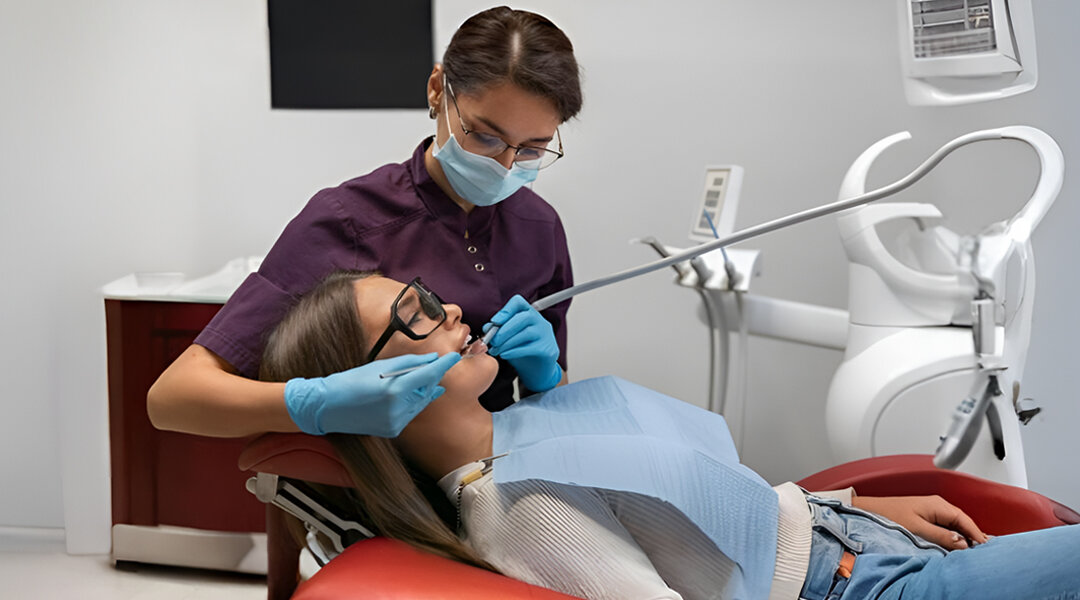Introduction
You’ve probably heard your dentist mention a “deep cleaning” and wondered if it’s really needed. Let’s be honest—most of us are happy with regular checkups and standard cleanings. However, when your gums start bleeding or your teeth feel a bit loose, you may hear the term “scaling and root planing.” That’s just another name for a deep cleaning.
If you’re searching for dental exams and cleanings in Victoria, TX, this guide will walk you through everything you need to know. We’ll talk about when it’s necessary, how it helps, and what recovery is like.
What Is a Deep Dental Cleaning?
A deep cleaning goes below the gumline. Unlike a standard cleaning, which focuses on the visible part of your teeth, a deep cleaning removes plaque and tartar from pockets between your teeth and gums.
Deep cleaning includes:
- Scaling: Removing tartar from above and under the gumline
- Root planing: It covers smoothing the roots of your teeth to help your gums reattach
This procedure is typically performed in two visits, often with the use of local anesthesia.
When Do Dentists Recommend Deep Cleaning?
Not everyone needs a deep cleaning. Your dentist may recommend it if you exhibit signs of gum disease, particularly periodontitis, a more severe form of gum inflammation.
Common reasons a dentist may suggest deep cleaning:
- Bleeding gums when brushing
- Bad breath that doesn’t go away
- Receding gums
- Loose teeth
- Deep gum pockets (4 mm or more)
If you’ve heard the question “Is deep cleaning teeth necessary?”, the answer depends on your gum health. For individuals with healthy gums, regular cleanings are typically sufficient. However, if your gums are infected, deep cleaning is often the first step in preventing tooth loss.
What Happens During a Deep Cleaning Appointment?
Here’s what to expect:
- Numbing the area: Local anesthetic is applied to reduce discomfort.
- Scaling: Your dentist or hygienist uses tools to scrape off tartar.
- Root planing: They smooth out the roots of your teeth.
- Post-treatment: You may be given an antibiotic rinse or a special toothpaste.
The entire process can take 1–2 hours, and often it’s split into two visits—one side of the mouth at a time.
What to Expect After Deep Cleaning
Don’t panic if your gums feel a little tender after your appointment. That’s totally normal. Here’s what most patients experience:
- Mild soreness for a day or two
- Increased tooth sensitivity to cold or heat
- Slight gum bleeding when brushing
Tips for easy recovery:
- Rinse with lukewarm salt water 2–3 times daily
- Avoid too hard or crunchy foods for 48 hours
- Use a soft-bristled toothbrush
- Follow all care instructions your dentist provides
Healing time varies, but most people feel back to normal in about a week.
How Deep Cleaning Helps in Long Term
This isn’t just about fresh breath. Deep cleaning plays a crucial role in reversing early gum disease and preventing more severe dental problems.
Long-term benefits:
- Reduces gum inflammation
- Prevents tooth and bone loss
- Stops gum recession from getting worse
- Lowers your risk of needing surgery later
Skipping deep cleaning can lead to tooth loss, especially if gum pockets continue to grow.
Common Misconceptions About Deep Cleaning
Let’s bust some myths.
- “It’s too painful.” With numbing and modern techniques, discomfort is minimal.
- “It’s the same as a regular cleaning.” Nope. This goes under the gums.
- “You only need it once.” Sometimes one session is enough. In other cases, you may need it every few years.
If you have concerns, ask your dentist in Victoria, TX to show you X-rays or measurements from your gum exam. It helps to see the evidence.
Do You Need to Repeat Deep Cleaning?
It depends on your oral habits and whether you maintain healthy gums afterward. Some people only need it once, followed by regular cleanings every 6 months. Others may need a maintenance plan with quarterly cleanings.
What Not to Do After a Deep Cleaning
Avoid these habits that can delay healing or reverse the benefits:
- Smoking (slows healing)
- Ignoring follow-up visits
- Eating sticky or spicy foods right away
- Skipping brushing/flossing out of fear
A deep cleaning is the starting line, not the finish line.
Final Thoughts
If you’re experiencing swollen gums, persistent bad breath, or bleeding while brushing, don’t ignore it. Gum disease doesn’t always cause pain until it becomes serious. A deep dental cleaning may sound intense, but it’s a smart way to prevent more significant issues down the road.
At Victoria Dentistry, our team is committed to ensuring you feel informed and comfortable every step of the way. Whether you’re looking for a new dental home or simply want to learn more about your gum health, we’re here to help.
 8809 N Navarro St Ste.100 Victoria TX 77904
8809 N Navarro St Ste.100 Victoria TX 77904

Recent Comments